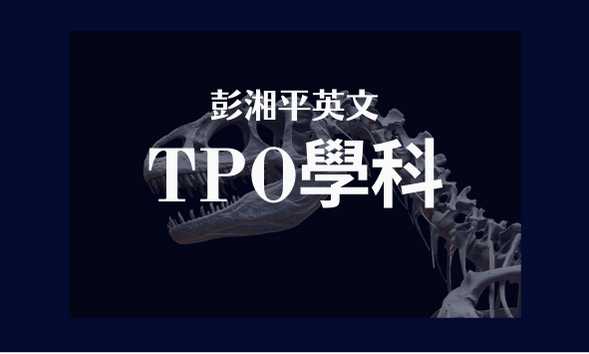⭐️TPO 17 L1: 使用地層學來年代測定 Using Stratigraphy to Date
📖參考連結:
✅延伸閱讀【地層學 Stratigraphy】:
https://en.wikipedia.org/wiki/Stratigraphy
✅聽力練習【地層學 Stratigraphy】:
https://www.youtube.com/watch?v=6w_TJS5j01M
⭐️TPO 44 L3: 證實農業在新幾內亞獨立發展的理論 Evidence supporting the theory that agriculture developed independently in New Guinea
📖參考連結:
✅延伸閱讀【巴布亞新幾內亞人是世界上最早的農民之一 Papua New Guineans among world’s first farmers】:
https://www.abc.net.au/science/articles/2003/06/20/883719.htm
✅聽力練習【為什麼農業在巴布亞新幾內亞十分重要? Why is agriculture important in Papua New Guinea?】:
https://www.youtube.com/watch?v=S1S4H4wFzjE
⭐️TPO 49 L4: 陶器幫助我們在時間上對事物進行排序,並且能鑑定相對的時代 Pottery helps us order things in time to assign relative dates
📖參考連結:
✅延伸閱讀【從陶器中學習,第一部分:年代測定Learning from Pottery, Part 1: Dating】:
https://www.archaeologysouthwest.org/2011/11/18/learning-from-pottery-part-1-dating/
✅聽力練習【洛里博士的如何解碼陶器側標 How to Decode Pottery Marks by Dr. Lori】:
https://www.youtube.com/watch?v=HjN0Em62LIc
⭐️TPO 52 L4: 對有關古代瑪雅文明衰落的普遍觀點提出質疑 To call into question a common view about the decline of ancient Mayan civilization
📖參考連結:
✅延伸閱讀【這就是瑪雅人放棄他們的城市的原因 This is Why the Maya Abandoned Their Cities】:
https://www.history.com/news/why-did-the-maya-abandon-their-cities
✅聽力練習【瑪雅文明為什麼會殞落呢?Why did the Maya civilization collapse?】:
https://www.youtube.com/watch?v=SxwxTgFVUDE
⭐️TPO 54 L4: μ介子探測器可以為考古學家提供的好處 Benefits that muon detectors can provide to archaeologists
📖參考連結:
✅延伸閱讀【探測μ介子 DETECTING MUONS】:
https://cms.cern/detector/detecting-muons
✅聽力練習【 μ介子探測 Muon Detecting】:
https://www.youtube.com/watch?v=uS8TC29xkns
⭐️TPO 63 L3: 蘇美語 Sumerian Language
📖參考連結:
✅延伸閱讀【蘇美語 Sumerian Language】:
https://en.wikipedia.org/wiki/Sumerian_language
✅聽力練習【關於蘇美語 About the Sumerian language】:
https://www.youtube.com/watch?v=EUXIPElqJZ4
⭐️TPO 70 柯普法則:化石譜系 Cope’s Rule: fossil lineages
📖參考連結:
✅延伸閱讀【柯普法則 Cope’s rule】:
https://en.wikipedia.org/wiki/Cope%27s_rule
✅聽力練習【 柯普法則 人類演化 Cope’s Rule Human Evolution】:
https://www.youtube.com/watch?v=fkK37JxR8oE
